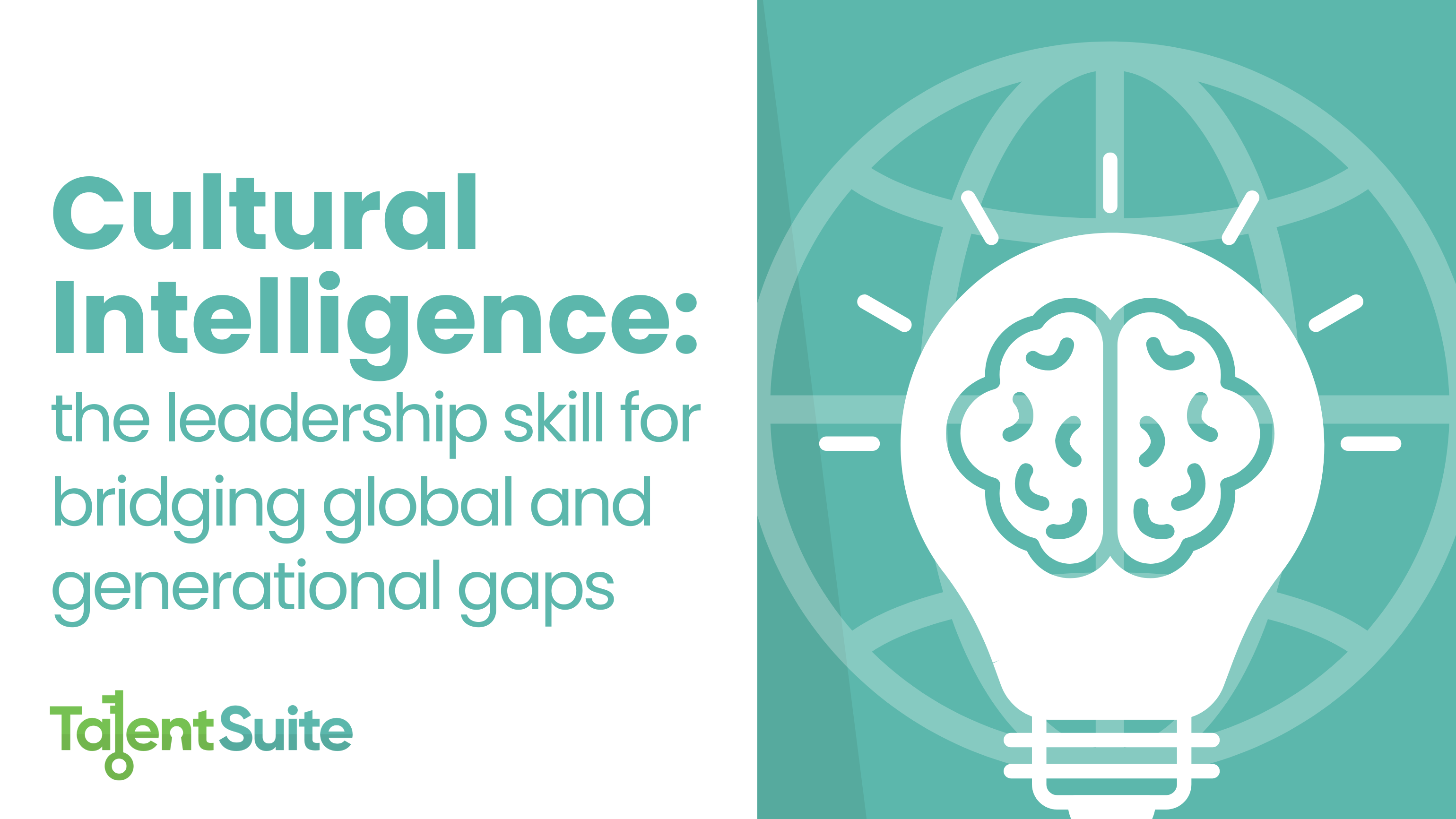
14 Jul Cultural intelligence: the leadership skill for bridging global and generational gaps
If teams are feeling misaligned, unclear, or hard to motivate, the issue may not be tactical. It may be cultural. In today’s hybrid, multigenerational, and diverse work environments, cultural intelligence is becoming one of the most essential skills a leader can develop.
What is cultural intelligence?
Cultural intelligence (CQ) is the ability to recognize and adapt to the values, communication styles, and expectations of people from different backgrounds. While traditionally associated with global teams, CQ is just as relevant for navigating generational differences, hybrid work situations, and the complex dynamics within any organization.
Each team member brings a unique set of cultural norms to the workplace. For one person, directness might signal trust. For another, transparency might feel like oversharing. Without cultural awareness, those differences can create friction. With it, they can become a competitive advantage.
Lessons from the field
Recent Harvard Business Review research, including Leading Global Teams Effectively (May 2025) by David Livermore and its companion tip article Develop Cultural Intelligence to Lead Global Teams, reveals a critical insight: traditional Western leadership approaches often fail in today’s diverse workplace environments. The research emphasizes that successful leadership across cultural and generational lines requires genuine curiosity and a willingness to understand what motivates different people.
Culture shapes how people lead, communicate, and make decisions, but not always in the same way. In American business settings, collaboration and group consensus are often emphasized. In other parts of the world, leadership may take a more formal tone, with clear expectations that the leader sets the direction and the team follows. In some regions, it may even be considered inappropriate for employees to challenge or disagree with their supervisor in a group setting.
These differences aren’t good or bad, they just highlight the importance of cultural awareness when working across teams and time zones. What feels natural in one context may be misinterpreted in another.
The same cultural awareness that applies globally is equally important within generational differences in the workplace. Research shows that Gen Z communication is characterized by being “visual, concise, individualized, or in-person, and transparent,” which differs significantly from previous generations. Baby Boomers may appreciate formal language, while Millennials prefer a casual tone, and Gen Z values meaningful work, diverse company culture, and open and honest communication above traditional hierarchical respect.
Cultural intelligence in modern leadership
According to Harvard Business Review: “To succeed, you must expand your approach by developing cultural intelligence, which will allow you to adapt to culturally complex situations.”
The Harvard Business Review research in Leading Global Teams Effectively reveals that according to the GLOBE Leadership Studies, 70% of the world’s workforce is collectivist and hierarchical, yet most Western leadership training emphasizes individualistic values like autonomy and empowerment. This disconnect creates significant challenges for leaders who assume what motivates them will motivate their entire team.
Open dialogue means different things across cultures and generations. Older generation people might not readily tell a key executive what they think, preferring more formal communication approaches, while younger generations don’t hesitate because they grew up prioritizing honesty and transparency in all their interactions.
Three key areas for cultural intelligence
Adjusting how you motivate people
Cultural intelligence requires understanding that motivation isn’t one-size-fits-all. Generational values play a crucial role – while older generations may value stability and clear hierarchies, younger employees often prioritize meaningful work, professional growth, and flexibility.
Redefining psychological safety
Creating inclusive norms means understanding that what feels “safe” varies dramatically across cultures and generations. A meeting with a baby boomer boss may call for a more formal tone, while a conversation with a Gen Z or millennial coworker could be more relaxed.
Tailoring transparency
Gen Z’s preference for transparent, honest communication can clash with older generations’ more reserved communication styles. Leaders need to expand their communication repertoire to align with varying comfort levels across both cultural and generational lines.
How Talent Suite develops cultural intelligence
Talent Suite works with leaders to develop cultural intelligence across all service offerings. This approach is about understanding differences to build unity, replacing assumptions with curiosity and moving away from one-size-fits-all leadership toward adaptive, culturally intelligent practices.
Culture as a leadership tool
By adapting your leadership style to different cultural and generational contexts, you can transform potential friction points into sources of strength and innovation.
Talent Suite can help your leadership team develop the cultural intelligence needed to lead effectively across generations, functions, and moments of change. To learn more about how we help organizations build culturally intelligent leaders, contact us today.
